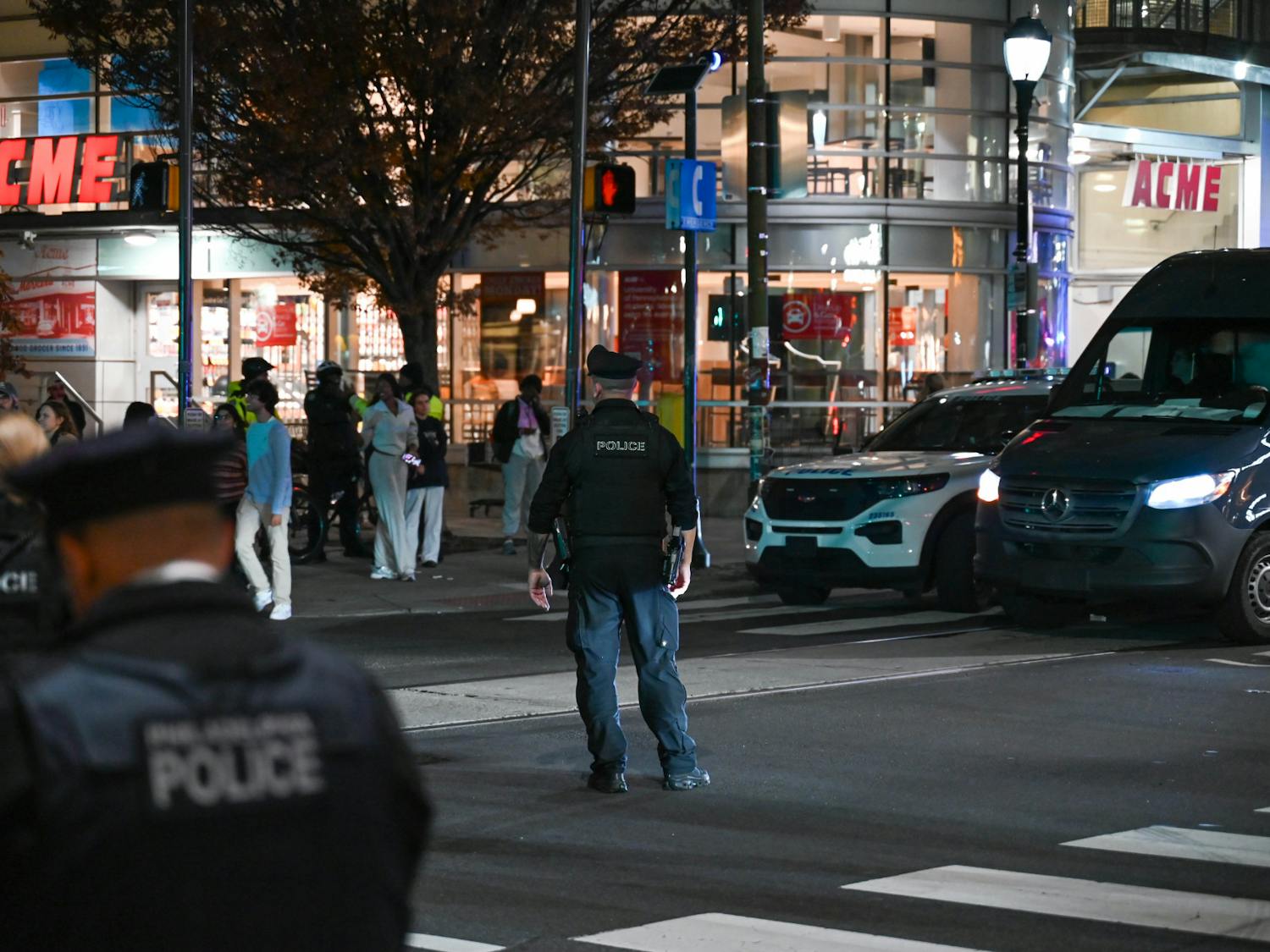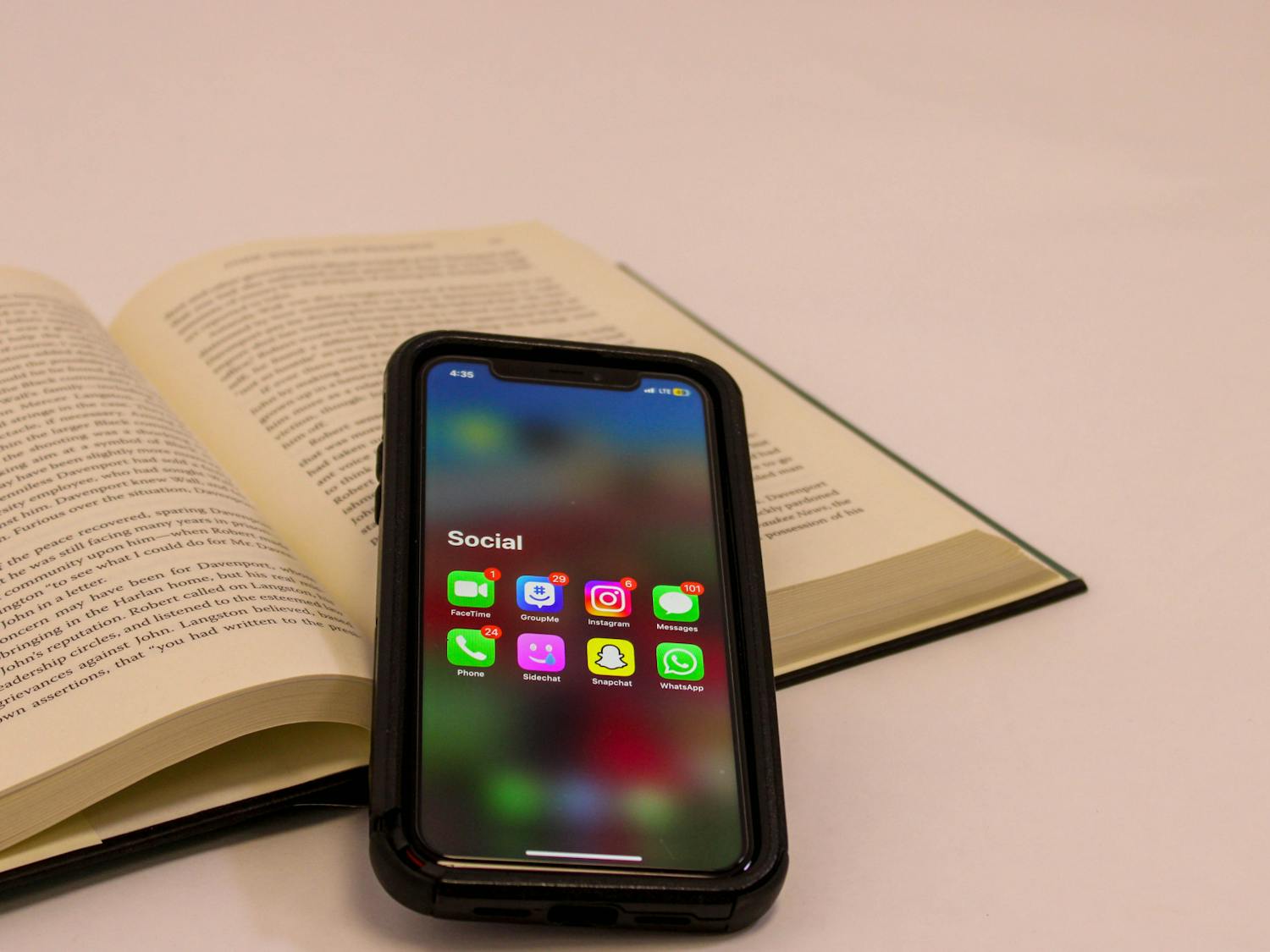Five years ago today, the world was irrevocably shaken.
Who does not remember where they were? Who has not told the story a dozen times? Huddled around television sets across the country, we watched New Yorkers flee from Lower Manhattan, a swelling cloud of dust and ash chasing them from their offices and homes.
"End of world," a corporate lawyer typed to her husband on her BlackBerry pager as she ran. Word spread quickly, and all of us watched in horror as the twin towers fell, the Pentagon burned and rescuers flocked to Shanksville, Pa. Through tears and disbelief, it became clear that life could not now proceed exactly as it had before.
Today, across the nation and the world, we look back on the event that changed the United States as we know it and on the history we thought we knew.
In 1992, a top State Department official named Francis Fukuyama published The End of History and the Last Man. A provocative book, it argued that with the defeat of fascism and the fall of Soviet Communism, liberal capitalism had triumphed supremely and that, in effect, history was at an end. Temporary setbacks and political controversies would endure, but to Fukuyama, these were mere pebbles next to the boulder of liberal democracy. The purpose of human history had been liberalism's intellectual ascendancy, the dominant narrative its inexorable rise.
9/11, of course, proved all that wrong. We have come to realize that liberal democracy is by no means an inevitable endpoint for all human societies. Instead, we are learning that a host of obstacles continue to subvert its widespread adoption in the world.
There are societies that freely assume institutional arrangements that are anti-liberal in character. There are authoritarian or only nominally democratic societies that refuse to transfer power from entrenched interests to the citizenry. And our international governance mechanisms remain weak, often incapable of supporting popular expressions of sovereignty.
These realities pose enormous challenges, and surmounting them will require a critical amalgam of knowledge, in parts normative and practical. The University's potential to harness such knowledge is vast. As world citizens, it is our duty to put that potential to work.
A smug complacency affected so many of us in the 1990s; but it has been replaced by a gnawing recognition that we face threats to our civilization that are complex, daunting and profound. Though catastrophes like 9/11 may tempt us to withdraw, we must instead engage the world vigorously, directing intellectual and moral energy into analyzing our challenges and illuminating prospective solutions.
Even before we were able to articulate this responsibility, university communities intuited it. At Penn and across the world, students, faculty and staff gathered together on the evening of Sept. 11, 2001, to participate in candlelight vigils. These were not only gatherings of commemoration and support, though they certainly were that. They were also acts of purpose, however nascent. Expressions of uncertainty and fear pervaded, but so did the sense that we, as practitioners of knowledge, would have a special obligation in the years ahead.
If today is a day to look back, it is also a day to look forward, to pledge our resolve in facing these new challenges and to embolden our efforts therein.
Countless Penn citizens found their career paths altered by the events of 9/11. Intelligence work, international affairs, politics and law became professional callings for many students who had not previously considered such choices.
wMeanwhile, our academic departments recognized the need to bolster their activities. The Solomon Asch Center for the Study of Ethnopolitical Conflict has stepped up its research efforts in the five years since the attacks, hosting annual summer institutes to train academics and other professionals in the interdisciplinary study of religious and ethnic violence. On the curricular side, our Arabic language enrollments have soared, from approximately 20 undergraduates a semester before 9/11 to more than 100 in recent years. Next fall, we will launch a modern Middle East major and minor, a multidisciplinary program directed by Political Science professor Robert Vitalis, which will encompass the languages, history, politics, economics, sociology and archaeology of the region.
As the Penn community finds new ways to carry out our core mission, we have also found cause to reaffirm it. More than ever, in the years since 9/11, we have understood the necessity of articulating and reinforcing our core democratic values.
Just what does this university, or any university, represent? What values do we uphold? These are questions for which we have real answers.
We uphold the pursuit of knowledge, intellectual freedom and tolerance. We uphold the capacity of education to heal and reform. We uphold the integrity of the individual alongside the integrity of the community. And we uphold the powers of diversity, compassion and cross-disciplinary collaboration in advancing meaningful change.
This sort of affirmation is as vital in times of crisis as it is in times of healing. And it remains as relevant to universities as it is to governments, polities and states.
When we gather today to remember the events of 9/11, remember also the work we still must do. That work requires wisdom, and at Franklin's Penn, The doors of wisdom are never shut. They remain open to us for the betterment of the world; it is up to all of us to pass through them.
Ron Daniels is the provost of the University. "A lasting impact" is a week-long series featuring faculty and student reflections on the impact of Sept. 11








